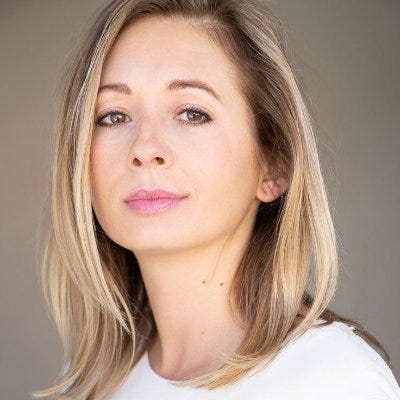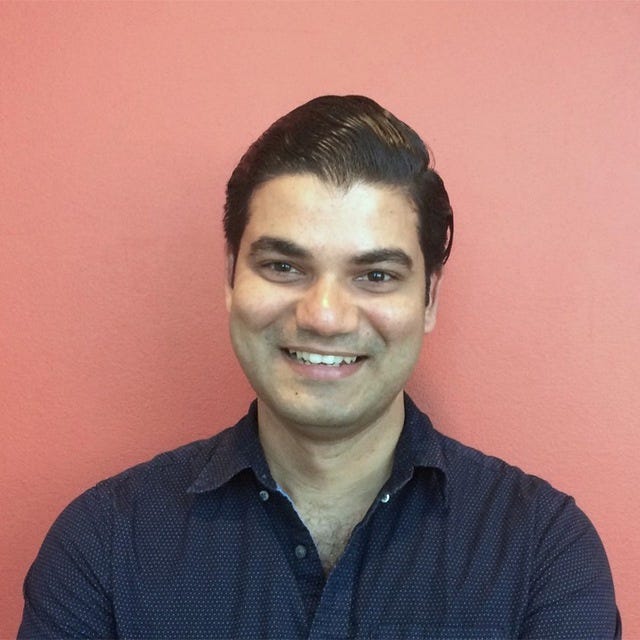In this article, we deep dive into the people’s side of blockchain. A core part of what makes this tech sector unique is the power of communities. Instead of building behind closed doors, we debate on Discord channels. As early participants in this ecosystem, I believe it is important to attempt to not speed run the same mistakes made by the folks in the web2 world. In the following paragraphs, I cover what my journey as a ‘woman in xx’ has been like and share a few glimpses of the conversations happening in this space around diversity.

BITS Pilani K.K Birla Goa Campus
I completed my undergrad in engineering from BITS in India. The gender ratio in my batch was 1:10. Nevertheless, I found a wonderful environment to grow in, and on a macro level, I can recall only two instances where I felt that my gender played a role in how people perceived my work.
The first was in 3rd year, when I was selected to be the Head of Events for the cultural fest (yes, I was that enthu kid). Serendipitously, a majority of the department heads were also females. We were promptly labeled the ‘girl fest’ and we made mistakes (as most 19-year-olds drunk on ‘PoR power’ do). A lot of mistakes, which I believe our predecessors (and successors) made too - however, the judgment from our batchmates was harsher and a lot of it was centered around girls leading the fest into the ditches. All of it seems silly in hindsight, but this was experience #1.
The second was during placements. A lot of well-deserved job offers were mocked because a few folks believed that girls only got offers because they were girls. To be fair - some companies seemed to brainlessly skew their processes but they were the exception. I also saw firms (an HFT firm in particular) that just did not have a SINGLE female. Others had female EAs or HRs but nobody in their core roles. (Note: both roles are very important to building a solid organization but firms need to think about why are they not being able to promote diversity in other job roles).
Post college, I landed myself in a crypto-VC firm and over the last two years I’ve often been asked ‘what is it like to be a woman in web3’.
Women in XX
What is it like to be a woman in web3? It’s a question I asked myself as well. Now, the thing is that I don’t know which of my behaviors stems from the fact that I’m a woman.
Am I bad at networking because I grew up in a small town in India where coaching classes were the only extra-curricular activity I had or is it because I’m a woman? Or am I comparatively more risk averse than my peers because my parent's generation were job holders who only invested in FDs and gold or is it because I’m a woman?
These and many more are tough questions to ask and require a lot of introspection. Thankfully I’ve been blessed with a wonderful ecosystem where people point out my behaviors and help me understand my actions better. But I’m a researchooor at heart and I’ve decided to take this up as a problem statement to understand and to work on. I’ve been doing some reading (and a lot of talking).
I grew up evangelizing innovation in Silicon Valley at early-stage companies which I believe has well prepared me for the fast-moving unpredictable world of crypto. As I was finishing up college I got a job at Morgan Stanley and through a turn of events of the school closing etc. I never finished my degree, and through my work in tech, I never looked back!
Having personal grit goes much further than any education when it comes to innovation and accelerating growth in crypto technologies.
-Valeria Kholostenko, CMO Astar Network
Valeria highlights a positive trend in the blockchain space which is promoting merit over college degrees. Anon founders have created meaningful impact (cc: 0xMaki) and a lot of work in different projects has been done via decentralized teams (cc: this Kernel block has people from 40+ countries, coming together to learn).
Let’s Forget About Gender
The impact of diversity can be measured in research labs where people have different backgrounds. We’ll look at psychologist Kevin Dunbar’s study on the productivity of different molecular biology research labs in the 1990s.
He spent a year with four labs in the US as a silent observer of their meetings. He states that these gatherings were nothing like the solitary portrayal of scientists, instead, Dunbar saw ideas being batted back and forth, new experiments proposed, obstacles discussed. He noted that labs most likely to turn unexpected findings into new knowledge made a lot of analogies and labs in which scientists came from diverse backgrounds were the ones where more varied analogies were offered.
In the only lab that did not make any new findings during Dunbar’s project, everyone had similar and highly specialized backgrounds. He says “when all members have the same knowledge then when a problem arises, a group of similar minded indivduals will not provide more information to make analogies than a single individual.”
-David Epstein, Author of Range
Another great example of the importance of diversity in thought is InnoCentive. It enables organizations to put their unsolved problems out to the crowd to address. John Davis, a chemist, proposed a solution that cleaned up a 20-year-old oil spill in Alaska - which the researchers at the Oil Spill Recovery Institute were unable to clean. Bruce Cragin, an engineer, solved the challenge of predicting solar particle storms - a task that NASA scientists were working on for 30 years.
Other organizations are now capitalizing on the diversity of thought. Another popular example is Kaggle. It is like InnoCentive but it only posts challenges in the field of ML.
Avoiding Echo Chambers
Encouraging people with different backgrounds fosters creative problem-solving. It is important to have people from different colleges, different specializations, different nationalities (if possible), different ages, and different genders in a team.

In my work with early-stage start-ups, I’ve seen people being pulled in from the founding team’s network to fill up positions. And that’s completely okay. In the kick-off phase, I believe it is over-ambitious to expect founders to have a model for maintaining diversity. However, the strongest founders I’ve seen reach out to a wide audience when trying to battle test ideas and as they move towards a ‘series A’ like maturity, team diversity becomes a core part of their expansion plans. Building a diverse team is a slow process but it is crucial to avoid echo chambers being formed inside the company. Here is a quote from Ganesh, Co-Founder of Covalent, who has assembled one of the most respected teams in web3:
In the early days of a startup, to achieve and maintain diversity, there needs to a conscious comittment to diversity of all kinds from the founders and the leadership team. Choices and decisions made at 10 people are very hard to undo at 100 people. The one caveat is that the team should be singularly focused on achieving product-market fit before trying to find a diversity balance. Without product-market fit, all will be for naught.
After about 50 people, we've had a good experience with a diversity committee - and on a quarterly basis they would audit practices, establish a training regiment, and shepherd behavior that's supportive of diversity and inclusiveness. There are also anonymous D&I surveys you can purchase to capture concious and unconcious biases amongst your team.
Broadly, I think the onus is on the founders of crypto startups to reset expectations / norms of the tech industry and shoot for a higher standard of themselves and this nascent industry.
-Ganesh Swami, Co-Founder of Covalent
On a personal level, I try to talk to people from different backgrounds, working on diverse problem statements and read about 2/3 different topics every week in order to develop breadth both in my network and my understanding. Here’s a piece I wrote on classical consensus that could be your week’s ‘breadth development’ read. I also try to talk to folks from different teams, attend online/offline events, and follow a diverse range of shitposters on Twitter.
Concluding this piece with an excerpt of my years-long conversation with my mentor, Himanshu.
The debate on diversity has always piqued my curiosity and it's about time actions started speaking louder than words.
A diverse organisation is richer in inclusiveness, expression and in representation of customer demographics, and yet unfortunately the perception of promoting diversity at the cost of meritocracy exists.
For all individuals in a decision making role, it is paramount to be honest to yourself. Are we doing enough?
At the minimum, creating belongingness and challenging biases that exist in the workplace is within our control. Do we have the courage to speak up to create inclusion, are we true allies?
The key to a change on a global scale starts with individuals. Each leader, employee, parent, teacher and mentor needs to do more to break the biases at all levels including at the critical foundational level of education for the leaders of tomorrow.
-Himanshu Yadav, General Partner at Woodstock Fund







